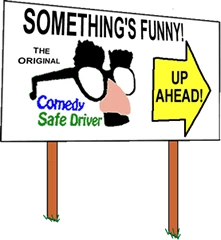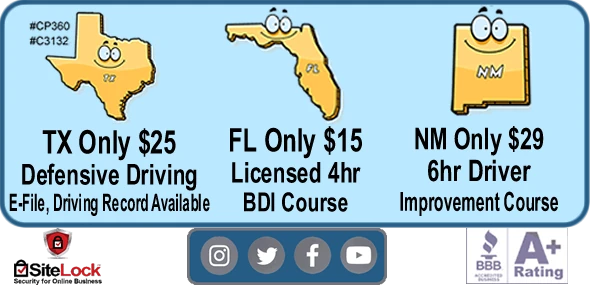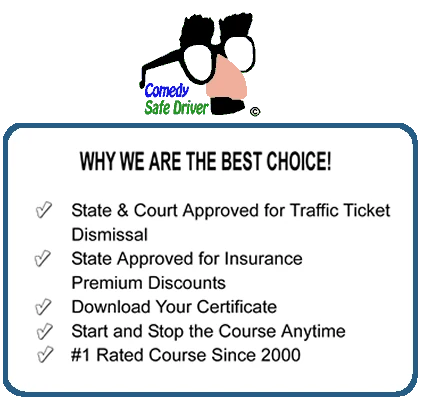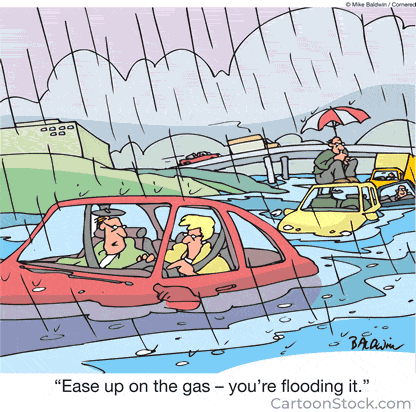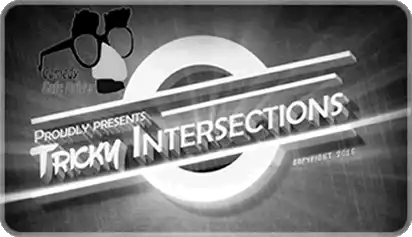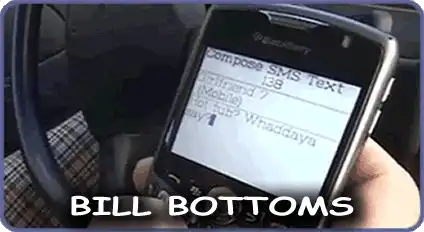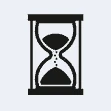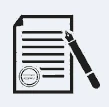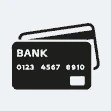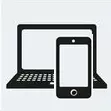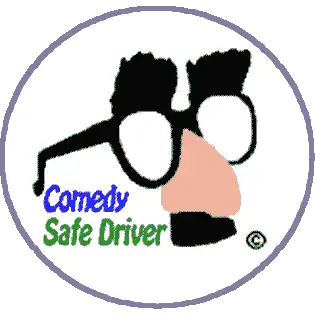
Welcome to Comedy Safe Driver's Collision Class Defensive
Why Choose Collision Class Defensive
Collision Class Defensive driving courses have several distinct benefits that make them a valuable choice for drivers of all experience levels. Here are some reasons why you might choose this program:
-
Comprehensive Curriculum: Collision Class Defensive driving courses offer a complete understanding of safe driving techniques. They cover all aspects, from understanding traffic rules and regulations to advanced driving skills. This comprehensive knowledge can help prevent accidents and collisions, hence the name.
-
Engaging and Interactive Approach: Instead of dry lectures, these courses focus on an interactive learning approach that can be more effective. They use a variety of teaching tools, such as video demonstrations, interactive quizzes, and role-play scenarios. This can make the learning experience more engaging and enjoyable, making it easier for participants to remember and apply what they've learned.
-
Safety Focus: The primary goal of these courses is to improve road safety. They provide strategies for managing and avoiding dangerous situations on the road. By learning to anticipate potential hazards, drivers can react more effectively in unexpected situations.
-
Insurance Discounts: Many insurance companies offer discounts on car insurance premiums to drivers who complete defensive driving courses. This can be a significant financial incentive.
-
Ticket Dismissal: In some jurisdictions, completing a defensive driving course can help drivers get a traffic ticket dismissed or reduce the number of points on their driving record.
-
Improved Driving Record: Beyond avoiding tickets, the skills learned in a defensive driving course can help drivers avoid accidents, leading to a cleaner driving record. A good driving record can lead to lower insurance premiums and may be beneficial in job situations where driving is required.
-
Confidence on the Road: Finally, these courses can help drivers feel more confident and calm on the road. By knowing how to handle a wide range of driving situations, drivers can reduce their stress and enjoy their time behind the wheel more.
The Power of The Horn: Using Your Horn to Avoid Collisions
Indeed, the horn is a powerful tool in defensive driving, though it is often overlooked or misused. Here are some key points about how the proper use of your car's horn can help avoid collisions:
-
Alerting Other Drivers:
Using your car's horn to alert others of your presence is a key aspect of defensive driving. Here are some situations where using your horn can increase safety:
-
Blind Corners: If you're driving in an area with lots of blind corners or sharp bends, a quick beep of your horn can alert any unseen drivers that you're coming, potentially preventing a head-on collision. This is especially important in areas where roads are narrow and two vehicles might not have enough space to pass each other safely.
-
Heavy Traffic: In dense, fast-moving traffic, drivers often have to make quick decisions and there can be a lot of distractions. If you notice a driver failing to see you while changing lanes or merging, a quick honk can alert them to your presence and prevent a collision.
-
Backing Out of Driveways: When drivers back out of driveways, they may not always have a full view of the street. If you see someone backing out without noticing you, a gentle tap on your horn can make them aware of your presence, preventing an accident.
-
Pedestrians and Cyclists: Pedestrians and cyclists can sometimes be hard to see and may not always be aware of their surroundings. If you see a pedestrian or cyclist about to step or ride into the road without seeing you, a quick honk can alert them to your presence. However, be mindful that a loud, long honk can startle them, so a short, softer honk is generally best in these situations.
-
Parking Lots: Parking lots can often be a hotbed of potential minor accidents, with cars backing out of spots and pedestrians moving between vehicles. A quick beep can alert other drivers and pedestrians to your presence.
-
-
Avoiding Accidents:
When it comes to avoiding accidents, the use of your car's horn can be an effective tool. In situations where another driver seems to be veering into your lane, for example, a quick beep can serve as a wake-up call, alerting them to potential danger. Here are some ways this can be useful:
-
Distracted Driving: In our modern world, distractions while driving are unfortunately common. It could be a driver looking at their phone, changing the radio station, or even dealing with children in the backseat. A quick beep of your horn can jolt them back to focusing on the road, potentially preventing an accident.
-
Drowsy Driving: Driver fatigue is a significant factor in many road accidents. If you notice a car swerving or drifting between lanes, it could be a sign that the driver is falling asleep at the wheel. A sharp honk can wake them up and hopefully encourage them to pull over and rest.
-
Impaired Driving: If a driver is under the influence of alcohol or drugs, their driving ability can be severely compromised. They might swerve between lanes or drive erratically. A honk might not fix the underlying problem, but it might alert them enough to correct their immediate behavior and prevent a collision.
-
Misjudgment: Sometimes, a driver might simply misjudge the distance or speed of your vehicle and start to drift into your lane. A honk in such a case can serve as a warning, giving them time to correct their course.
-
-
Signaling Emergencies:
In certain situations, using your car's horn can effectively communicate an emergency to other road users. This is particularly important when your vehicle is out of control or experiencing a mechanical failure that could lead to an accident. Here are some ways in which your horn can be used in these situations:
-
Loss of Control: If you lose control of your car for any reason, whether due to a mechanical failure, a flat tire, or hazardous road conditions (like black ice), honking your horn continuously can alert other drivers that something is wrong. This can prompt them to slow down, move away, or take other evasive actions, potentially avoiding a collision.
-
Brake Failure: If your brakes fail and you're unable to slow down or stop your vehicle, using your horn can alert drivers ahead of you that you can't stop. This can be especially crucial in heavy traffic, where sudden braking is common.
-
Steering Failure: If your steering system fails and you can't control your car's direction, honking your horn can alert others to the danger. This is particularly important in areas with lots of pedestrian traffic or narrow roads where drifting off course can lead to serious accidents.
-
Visibility Issues: In situations where visibility is severely reduced due to weather conditions like heavy rain, fog, or snow, using your horn can help alert other drivers of your presence, reducing the risk of a collision.
-
However, it's important to remember that the horn should be used sparingly and appropriately:
-
Avoid Unnecessary Honking:
Using the car's horn is an effective way to alert other drivers or pedestrians of your presence or of potential danger, but it's important to use it sparingly and appropriately. Unnecessary honking can have several negative effects:
-
Noise Pollution: Constant and unnecessary use of car horns contributes to noise pollution, which can be especially problematic in urban and residential areas. Noise pollution has been linked to several health issues including stress, sleep disturbances, and even heart disease. Cities around the world are grappling with this issue, and some have even introduced fines for unnecessary honking.
-
Causing Confusion: Excessive honking can lead to confusion on the road. If horns are sounding constantly, it can be difficult for drivers to ascertain if there's a genuine need for alarm or if it's just someone being impatient. This could potentially lead to accidents if drivers become desensitized to the sound of horns and fail to react appropriately when there is a real danger.
-
Inducing Panic: A sudden, loud honk can startle other drivers, causing them to react impulsively and potentially leading to accidents. This is particularly true for new or nervous drivers who might not have the experience to react calmly under sudden stress.
-
Road Rage: Inappropriate use of the horn can also contribute to road rage incidents. Using the horn aggressively or in a confrontational manner can escalate tensions on the road and lead to dangerous confrontations.
-
-
Brief and Polite:
The manner in which you use your car's horn can have a significant impact on other road users' reactions. Here's why a brief, polite toot is usually the best approach:
-
Preventing Startle Reactions: A sudden, loud horn can startle other drivers, pedestrians, or cyclists. This can cause them to react in unpredictable or dangerous ways, such as swerving into another lane or stepping into the path of oncoming traffic. A brief, polite toot is usually enough to get their attention without causing alarm.
-
Encouraging Proper Responses: A polite honk is more likely to elicit a proper response. Instead of reacting out of fear or surprise, the other driver or pedestrian can take a moment to assess the situation and react appropriately.
-
Promoting Positive Road Etiquette: Using your horn in a respectful way promotes a more positive atmosphere on the road. It helps to reduce road rage incidents and encourages other drivers to use their horns more considerately as well.
-
Reducing Noise Pollution: As mentioned before, noise pollution is a significant problem in many urban areas. Using your horn briefly and only when necessary can help to reduce this issue.
-
-
Responding to Honks:
Responding to the sound of a car horn in a calm, considered manner is crucial for maintaining safety on the road. Here's how you should approach it:
-
Stay Calm: The first thing to remember if you hear a honk is to remain calm. Panicking or reacting impulsively can potentially lead to dangerous situations. Keep in control of your vehicle and take a few moments to assess the situation.
-
Identify the Source: Try to figure out where the honk is coming from. Use your rearview and side mirrors to help identify which vehicle honked and why. If you're unsure, it's best to continue driving safely and cautiously.
-
Assess the Situation: Once you've identified where the honk came from, try to understand why it happened. Did you drift from your lane? Are you driving too slowly in the left (overtaking) lane? Is there a hazard you didn't notice? Understanding the reason for the honk can help you correct any potential mistakes.
-
Correct Safely: If you realize you've made a mistake, correct it safely. Signal your intentions clearly and make sure it's safe before changing lanes, speeding up, or slowing down. Avoid abrupt actions that could confuse other drivers or lead to accidents.
-
Learn From the Experience: Use the honk as a learning experience. If you made a mistake, acknowledge it and remember to avoid it in the future. This can help you become a safer and more responsible driver.
-
Remember, the horn is not a tool for expressing anger or frustration but an instrument for promoting safety on the road. Using it correctly can help prevent accidents and save lives.
Sign Up for the Collision Class Defensive Today!
Don't wait until it's too late. Join the Comedy Safe Driver's Collision Class Defensive and become a safer, more responsible, and funnier driver. Click the button below to sign up now.

